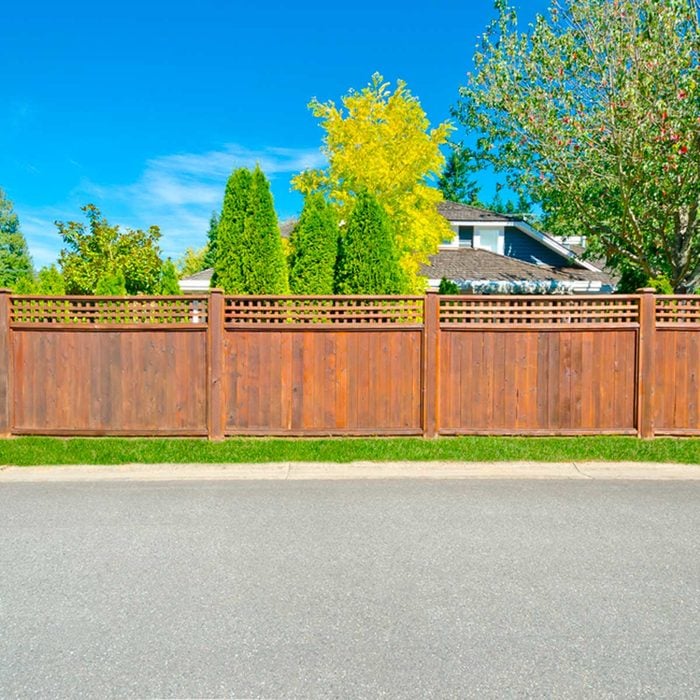
Mixed Plants with Privacy Fence
Privacy plants come in many shapes and sizes. Sometimes it pays to use a mixed palette, which creates attractive yet effective privacy. Rather than a plain stockade fence, this one is topped with handsome latticework, then landscaped using a variety of plants including upright evergreens as well as columnar and spreading deciduous trees.

Mixed Plants with Picket Fence
There’s plenty of privacy here, but the picket fence and gate are more welcoming visually. Evergreen hedges still hold sway in this yard, but to keep a sense of openness, the middle ground is landscaped with plants. Note how the deciduous trees are positioned strategically, blocking a view to the back porch and a room to the left.
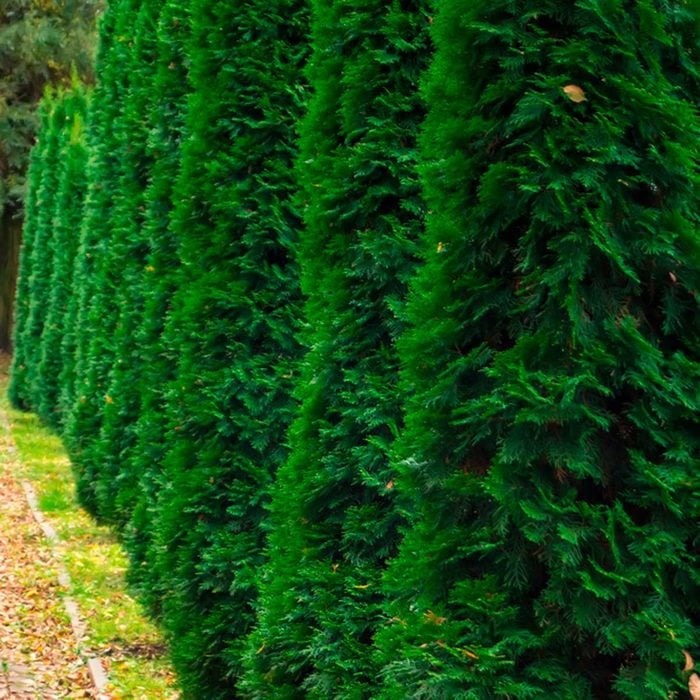
Arborvitae
When it comes to privacy plants, it’s hard to beat arborvitae (Thuja spp.). Its foliage is thick, vivid green, luxuriant, scented—and it grows fast without a lot of help! There are cultivars available with mature heights of 6 to 20 feet. Or you can shear off the top to keep it at the height you prefer.
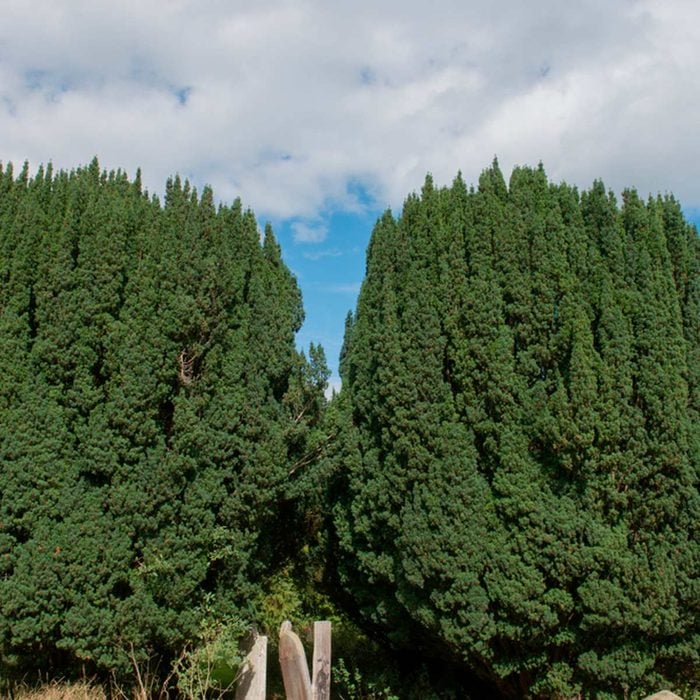
Yew
Once favored as a cemetery plant because of its ability to live for hundreds of years, yew (Taxus spp.) has been used in home landscapes as well. Yews are most often found as low-growing mounded shrubs, but there are pyramidal and upright versions for those seeking privacy. You can shear them for a formal look or let them grow naturally.
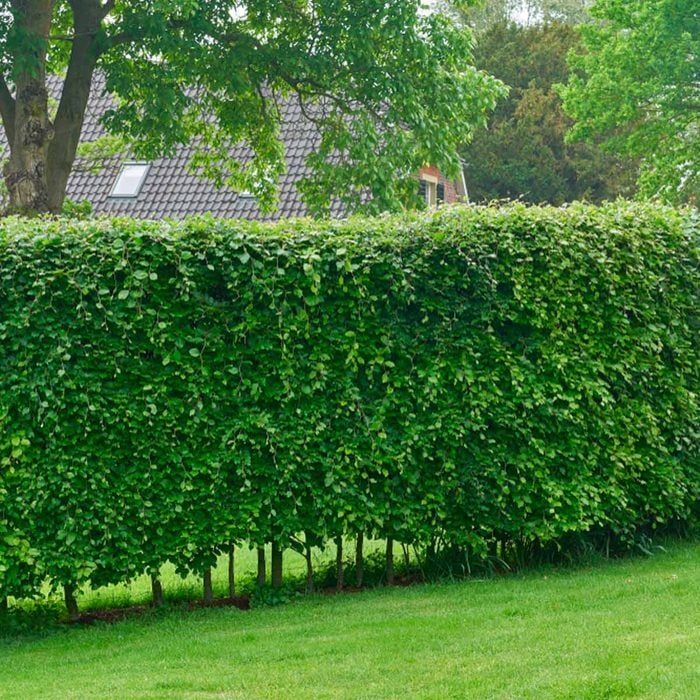
Hornbeam
Is it a tree? Or is it a shrub? Grow a bunch together and the hornbeam tree (Carpinus spp.) indeed becomes a shrub-like hedge. This long-lived deciduous tree is blessed with beautiful fall foliage and smooth beech-like bark. But since it takes well to regular shearing, hornbeam fills in nicely as a hedge, making it a good privacy plant.
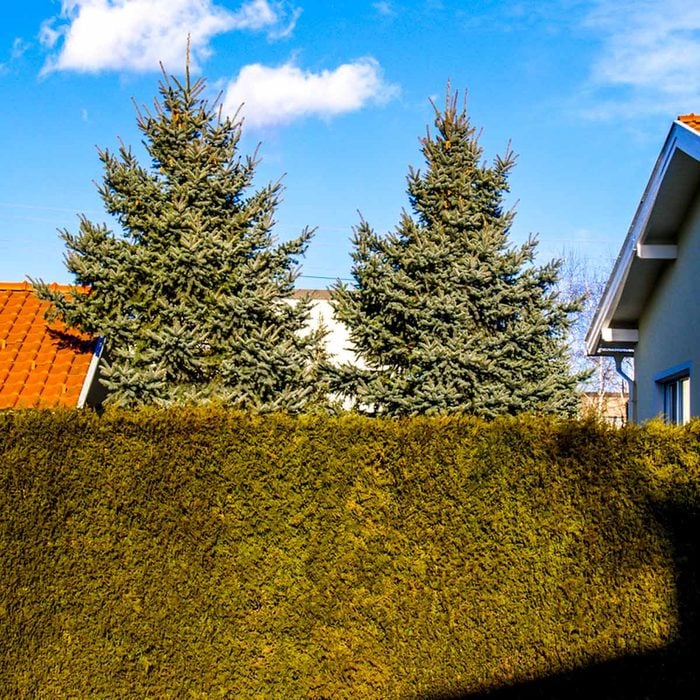
Double Play: Arborvitae and White Fir
For those who don’t want to take any chances planting a tree, there is the two-tiered approach to privacy: a sheared arborvitae hedge backed by evergreen trees such as these white fir (Abies concolor). This strategy ensures privacy from both ground level and neighboring second-story windows.
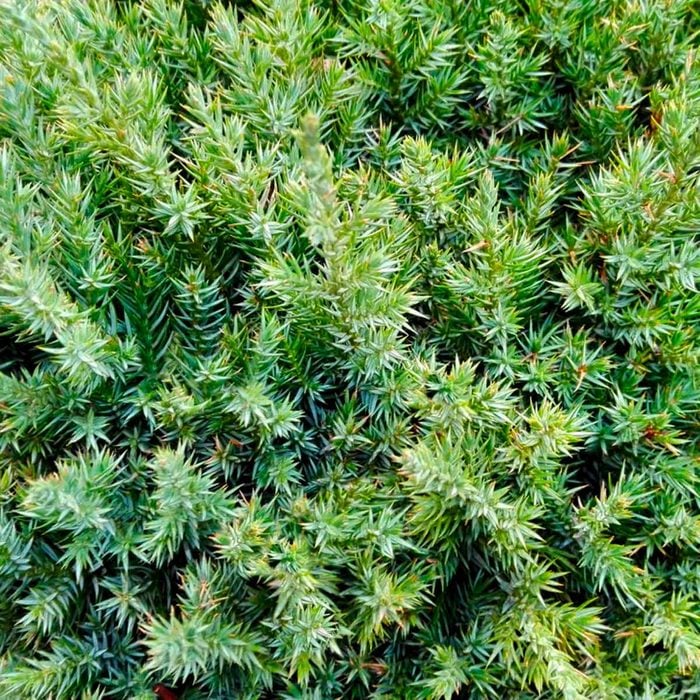
Juniper
Need evergreen privacy when you have a problem with deer browsing? Or periodic drought? Or poor soil? Your answer is juniper (Juniperus spp.). There are many species and cultivars covering everything from sprawling groundcovers to upright growers to rival any arborvitae.
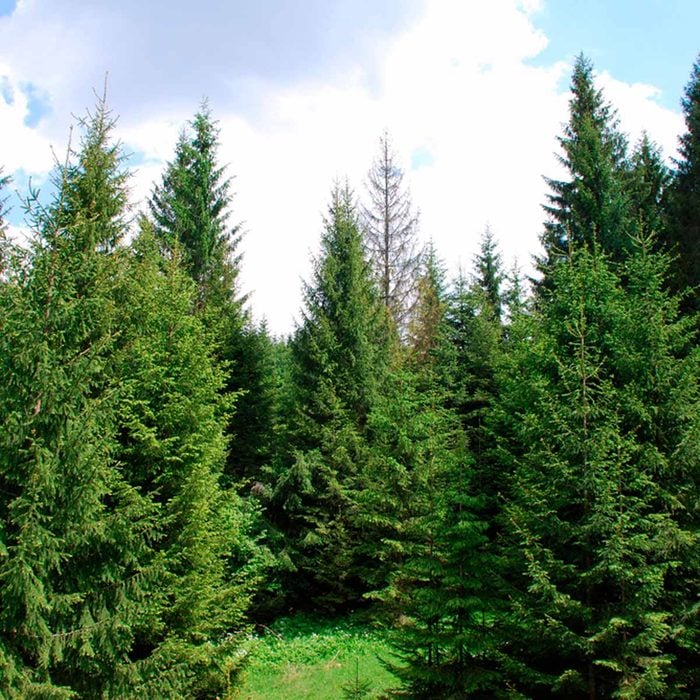
Norway Spruce
For a regal habitat and commanding height, there’s nothing like Norway spruce (Picea abies). It can grow 80 feet tall and features dark green sweeping boughs that look graceful from any distance. Thinking of planting a tree? Don’t make these mistakes.
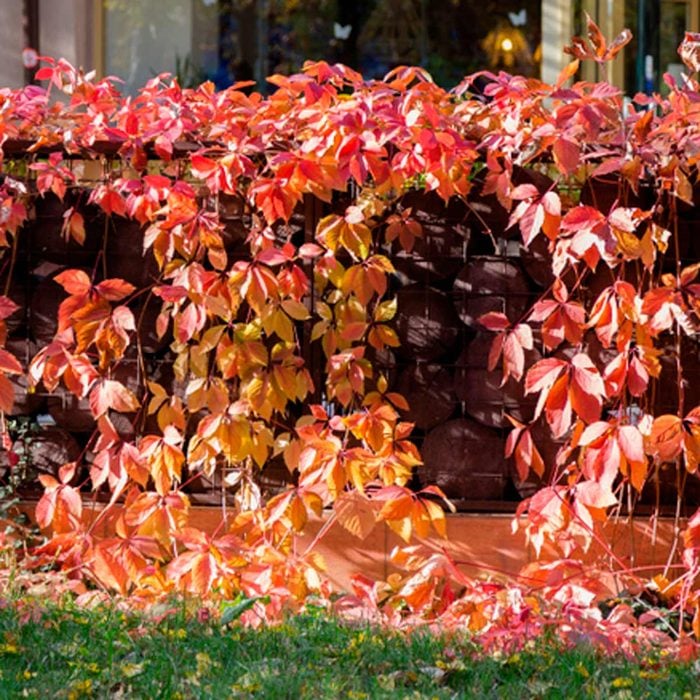
Boston Ivy
Vines are the forgotten players when it comes to privacy plants and that’s unfortunate. For one thing, most are quick growing. And some, like Boston ivy (Parthenocissus tricuspidata), are also beautiful, especially in fall. Use Boston ivy to cover a fence or wall to add some ambiance to your privacy. If you have any of these 12 plants in your yard, you should know that they may be dangerous.
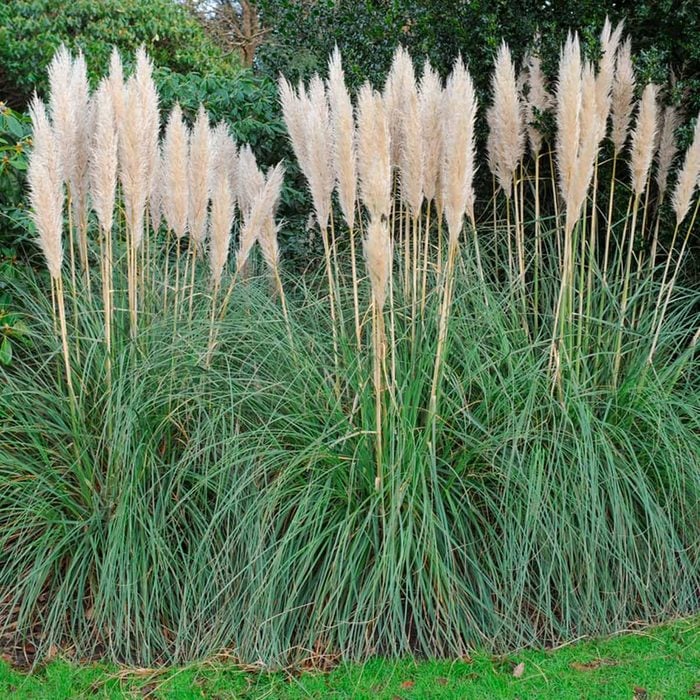
Tall Ornamental Grasses
For quick-growing privacy plants, try pampas Grass (Cortaderia selloana), giant grass (Miscanthus giganteus) and other ornamental grasses that top 10 or more feet. They shoot up quickly, peak in late summer and early fall, and stay upright for winter interest. Chop them down in early spring and watch the whole privacy screen rise up again in no time. Here are some more ornamental grasses you should get to know.
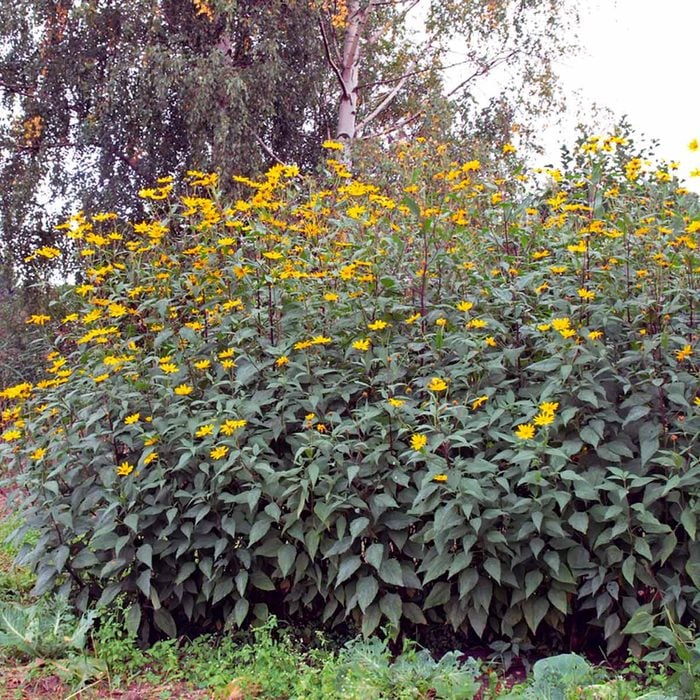
Sunflowers
Privacy can be beautiful! And colorful, too. Nature provides the recipe with tall flowers. Of course, there are the annual sunflowers we’re all familiar with—some growing up to 15 feet tall—but you can also grow perennial sunflowers such as Jerusalem artichoke (Helianthus tuberosus) and Maximilian sunflower (Helianthus maximiliani), which both grow up to 8 feet tall. That’s just fine for screening a deck or patio. Once you’ve got your privacy, you’ll want to create a backyard oasis within. Here are some ideas to consider.